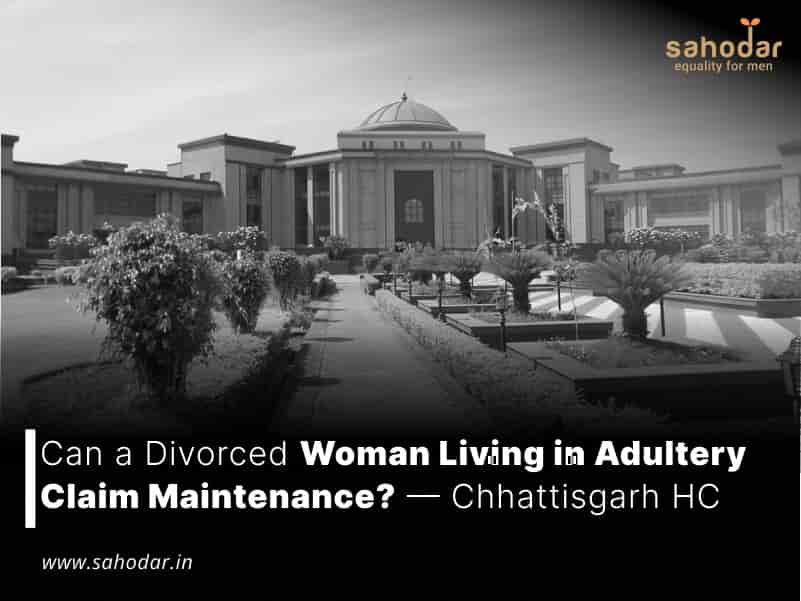A man challenged a Family Court order granting maintenance to his ex-wife, who had been divorced on the ground of adultery.
The Chhattisgarh High Court has ruled that a divorced woman engaged in an adulterous relationship—i.e., living with a man other than her ex-husband—is not entitled to maintenance under Section 125 of the Code of Criminal Procedure (CrPC).
The matter arose from cross-revision petitions filed before the High Court. The husband had challenged a Family Court order directing him to pay ₹4,000 per month as maintenance to his ex-wife. Meanwhile, the wife sought an increase in the amount to ₹20,000 per month, citing lack of income.
In response, the husband opposed her plea, alleging that she had entered into an illicit relationship with his younger brother soon after their marriage.
A Bench of Justice Arvind Kumar Verma said, “Sub-Section 4 of Section 125 of the CrPC provides that if a woman lives in adultery, whose marriage is still subsisting, she is not entitled for maintenance from her husband. Suppose, a decree for divorce is granted on the ground of her living in adultery, can it be said that the said disqualification of which she was suffering from all along, during the subsistence of the marriage, will cease to exist, because of the decree for divorce?. The prudent answer to this question shall be an emphatic – “No”. The decree obtained by the husband for divorce on proving the adulterous life of the wife cannot give a license to her to continue to live in illicit relationship and to get her right to claim maintenance revived. Therefore, I conclude that a divorced wife, who lives in adultery, viz., living in illicit relationship with man other than her former husband is disqualified from claiming maintenance, under Section 125 of the Code.”
The Court underscored the statutory bar under Section 125(4) of the CrPC in such matters. It noted that the provision clearly states a wife is not eligible for maintenance if she is living in adultery, refuses to live with her husband without just cause, or if the separation occurred by mutual consent.
The Court further held that if a wife is found guilty of adultery, the granting of divorce on that ground does not restore her entitlement to maintenance, as the disqualification under the law persists throughout the marriage.
The High Court also reviewed the divorce decree, which had been passed after the Family Court found credible evidence of the wife’s adulterous behavior. Since the decree had not been contested, the Court considered it binding and treated it as conclusive proof of adultery.

